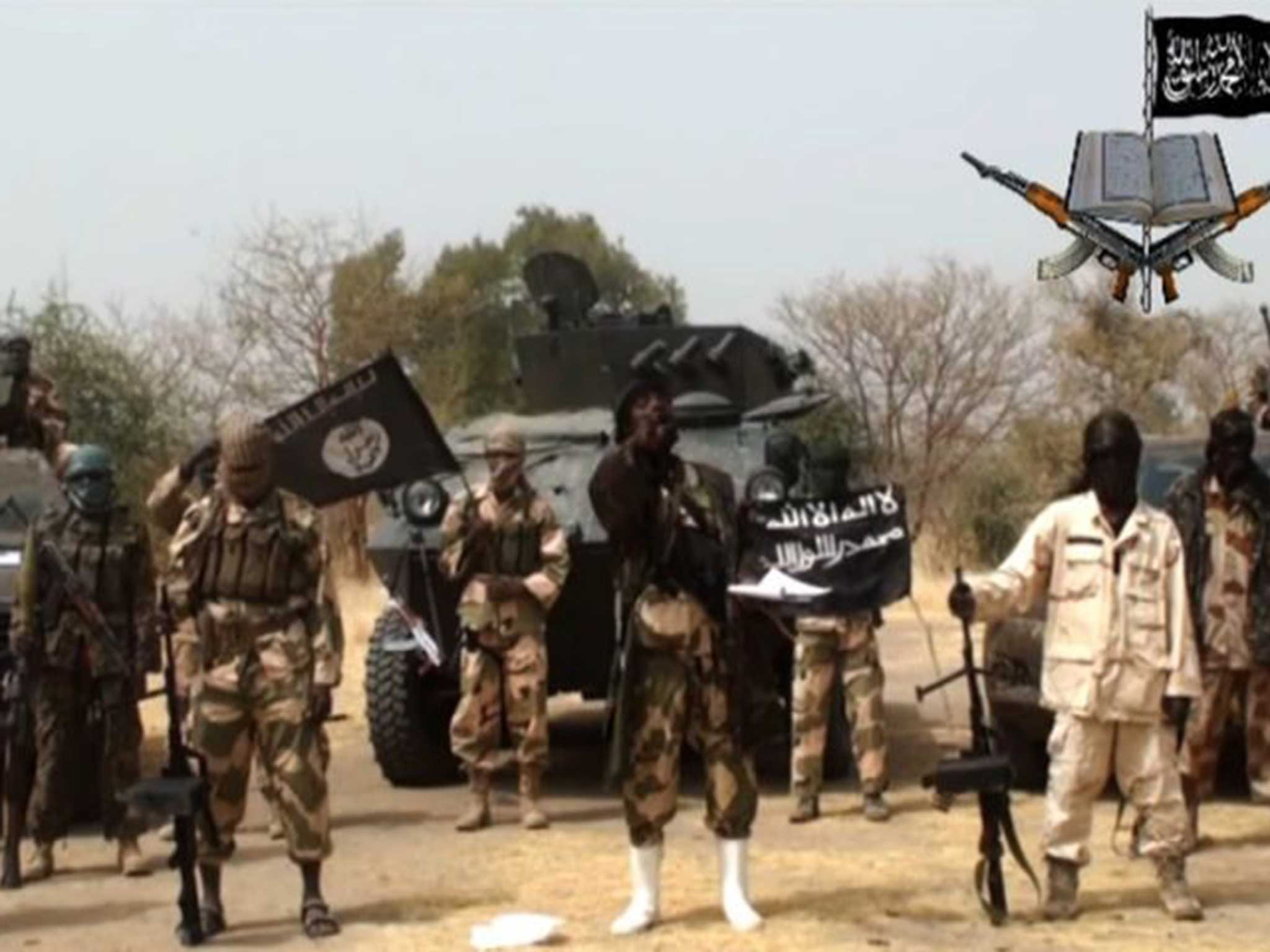Boko Haram releases 27 hostages including Deputy PM's wife, Cameroon says
The militant jihadi group had taken two groups of hostages in May and then July - they are said to be safe and well

Your support helps us to tell the story
From reproductive rights to climate change to Big Tech, The Independent is on the ground when the story is developing. Whether it's investigating the financials of Elon Musk's pro-Trump PAC or producing our latest documentary, 'The A Word', which shines a light on the American women fighting for reproductive rights, we know how important it is to parse out the facts from the messaging.
At such a critical moment in US history, we need reporters on the ground. Your donation allows us to keep sending journalists to speak to both sides of the story.
The Independent is trusted by Americans across the entire political spectrum. And unlike many other quality news outlets, we choose not to lock Americans out of our reporting and analysis with paywalls. We believe quality journalism should be available to everyone, paid for by those who can afford it.
Your support makes all the difference.Jihadi group Boko Haram are understood to have released 27 hostages, Cameroon’s President has said.
A statement from President Paul Biya’s office said that the freed hostages include Francoise Agnes Moukouri, the wife of Deputy Prime Minister Amadou Ali, in addition to 10 Chinese construction workers.
The labourers were kidnapped on 16 May from their base in Waza, at the far northern reaches of Cameroon beside the border to north-east Nigeria.
Cameroon is just one of the countries that Boko Haram operates in – according to the TRAC (Terrorism Research and Analysis Consortium) the militant group based in Nigeria is also present in Chad and Niger.
Boko Haram, which seeks to carve out an Islamic state in Nigeria under Sharia rule and has links to Al-Qaeda, was declared a terrorist organisation by the United States in November 2013.
A further 17 people freed today had been seized from their residence in the border town of Kolofata on 27 July, after 200 fighters stormed the home before setting fire to it and killing five others.
Boko Haram was suspected of being behind the kidnaps, though the group never claimed responsibility for them.
Cameroon confirmed that all hostages were safe, but did not release any further details relating to their release, such as whether a ransom, which Cameroon has previously said it never pays, was given.
Boko Haram still has 200 kidnapped girls, who were taken from their school in the north-east Nigerian village of Chibok in April.
Their abduction led to an international outcry and has resulted in increased military co-operation with surrounding countries, including Cameroon.
A British Foreign Office Minister, James Duddridge, visited Nigeria’s capital Abuja on 3 September to discuss the ongoing co-ordination between Africa and UK against Boko Haram.
He said at the time: “Boko Haram is a growing threat to peace and stability in the region, and regional coordination between Nigeria and its neighbours remains crucial to defeating the extremists and locating the missing Chibok girls.
“In London, the UK announced a substantial package of military, security and development assistance. I will be updating partners on the significant progress made on implementation of this package, whilst underlining that respect for human rights and safeguarding the civilian population remain the key pillars of our support.”
Boko Haram also has a splinter faction in Nigeria called Ansaru, which kidnapped and killed seven foreign construction workers in 2013.
A suicide bomb by Boko Haram on the United Nations building in Abuja in August 2011 killed 21 people and injured dozens more.
Join our commenting forum
Join thought-provoking conversations, follow other Independent readers and see their replies
Comments